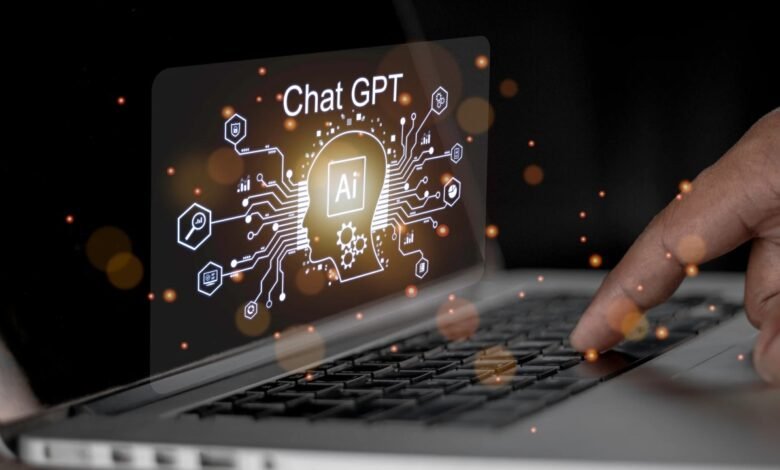ChatGPT: Everything you need to know about the AI-powered chatbot

What is ChatGPT?
It is an AI-powered chatbot developed by OpenAI, a leading artificial intelligence research laboratory. It leverages state-of-the-art natural language processing techniques to generate human-like responses to text inputs. Unlike traditional rule-based chatbots, it utilizes deep learning algorithms to understand and generate contextually relevant responses, making it highly flexible and adaptable.
How does it work?
Natural Language Processing (NLP)
At the core of ChatGPT’s functionality lies natural language processing, a branch of AI that enables computers to understand and interpret human language. it processes textual inputs, analyzes them for patterns and context, and generates coherent responses based on its training data.
Machine Learning Algorithms
It is powered by advanced machine learning algorithms, particularly deep learning models such as the Transformer architecture. These models are trained on vast amounts of text data, allowing It to learn complex language patterns and generate high-quality responses.
Applications
ChatGPT finds application across various industries and domains, including:
Customer Service
Many businesses leverage ChatGPT to provide instant support to their customers. It can handle frequently asked questions, troubleshoot issues, and even escalate queries to human agents when necessary, thereby improving overall customer satisfaction.
Content Generation
Content creators and marketers use ChatGPT to generate blog posts, articles, social media captions, and product descriptions efficiently. It can generate content on a wide range of topics, saving time and effort for content creators.
Language Translation
It multilingual capabilities make it suitable for language translation tasks. It can translate text from one language to another with high accuracy, enabling seamless communication across different linguistic backgrounds.
Benefits of ChatGPT
Time-saving
By automating repetitive tasks such as customer inquiries and content generation, it helps businesses save time and resources, allowing them to focus on more strategic initiatives.
Cost-effective
Implementing ChatGPT can lead to significant cost savings for businesses, as it reduces the need for human intervention in tasks like customer support and content creation.
Enhanced customer experience
It provides instant responses to customer queries, leading to improved responsiveness and customer satisfaction. Its ability to understand natural language makes interactions with customers more conversational and personalized.
Limitations of ChatGPT
While it offers numerous benefits, it also has some limitations, including:
Accuracy
It responses may not always be accurate, especially when faced with ambiguous or complex queries. It relies heavily on its training data, which may not cover all possible scenarios.
Understanding complex queries
It may struggle to understand and respond to highly technical or nuanced queries, as its training data may not adequately cover such topics.
Comparison with other chatbots
ChatGPT outperforms many traditional rule-based chatbots in terms of flexibility and conversational ability. Its ability to generate contextually relevant responses sets it apart from its counterparts.
Future prospects
As AI technology continues to advance, ChatGPT is expected to become even more sophisticated and capable. Its potential applications in areas such as virtual assistants, healthcare, and education are vast and promising.
How to integrate ChatGPT into your business
Integrating it into your business is relatively straightforward. Many platforms offer APIs and SDKs for seamless integration, allowing you to deploy it across various channels such as websites, mobile apps, and messaging platforms.
Case studies of successful ChatGPT implementation
Several businesses have successfully implemented ChatGPT to streamline their operations and improve customer engagement. Case studies showcasing these success stories can provide valuable insights into the practical benefits of it.
Tips for effective use
To maximize the effectiveness of ChatGPT, consider the following tips:
- Provide sufficient training data: Ensure that it is trained on relevant and diverse datasets to improve the accuracy of its responses.
- Fine-tune responses: Periodically review and fine-tune it responses based on user feedback and performance metrics.
- Monitor performance: Regularly monitor it performance and adjust its parameters as needed to optimize its effectiveness.
Common misconceptions about ChatGPT
Despite its capabilities, ChatGPT is sometimes subject to misconceptions. Some common misconceptions include:
- It is infallible: While it is highly advanced, it is not immune to errors or biases present in its training data.
- It can replace human agents entirely: While it can handle many tasks autonomously, human oversight and intervention are still necessary in certain situations.
Ethical considerations
As with any AI technology, it raises important ethical considerations regarding privacy, bias, and accountability. It is essential to address these concerns proactively and ensure that ChatGPT is used responsibly and ethically.
Read More: How to Use ChatGPT New Voice Command and Image Features
Conclusion
ChatGPT stands as a testament to the incredible advancements achieved in the field of artificial intelligence. Its ability to understand and generate contextually relevant responses has reshaped the way businesses interact with their customers, streamlining processes and enhancing user experiences. While it has undoubtedly brought about significant benefits, it is essential to recognize its limitations and address ethical considerations surrounding its use. By embracing responsible deployment and continual improvement, it holds the potential to further revolutionize communication and automation in the digital age.
Looking ahead, the future of it is brimming with promise and possibility. As AI technology continues to evolve, we can expect it to become even more sophisticated and versatile, unlocking new opportunities for innovation and growth across various industries. By harnessing the power of it and leveraging its capabilities to their fullest extent, businesses can stay at the forefront of technological advancement and deliver exceptional experiences to their customers in the years to come.
FAQs
Is ChatGPT free to use?
it is available through various subscription models, with pricing depending on usage and features.
Can ChatGPT understand multiple languages?
Yes, it supports multiple languages and can translate text between them with high accuracy.
How accurate is ChatGPT’s responses?
it accuracy varies depending on the complexity and context of the query, but it generally performs well in generating coherent and contextually relevant responses.
Does ChatGPT have any privacy concerns?
Like any AI-powered system, it may raise privacy concerns regarding the handling of user data. It is essential to implement appropriate safeguards and policies to protect user privacy.
Can ChatGPT be customized for specific use cases?
Yes, it can be fine-tuned and customized for specific use cases through additional training and configuration.











